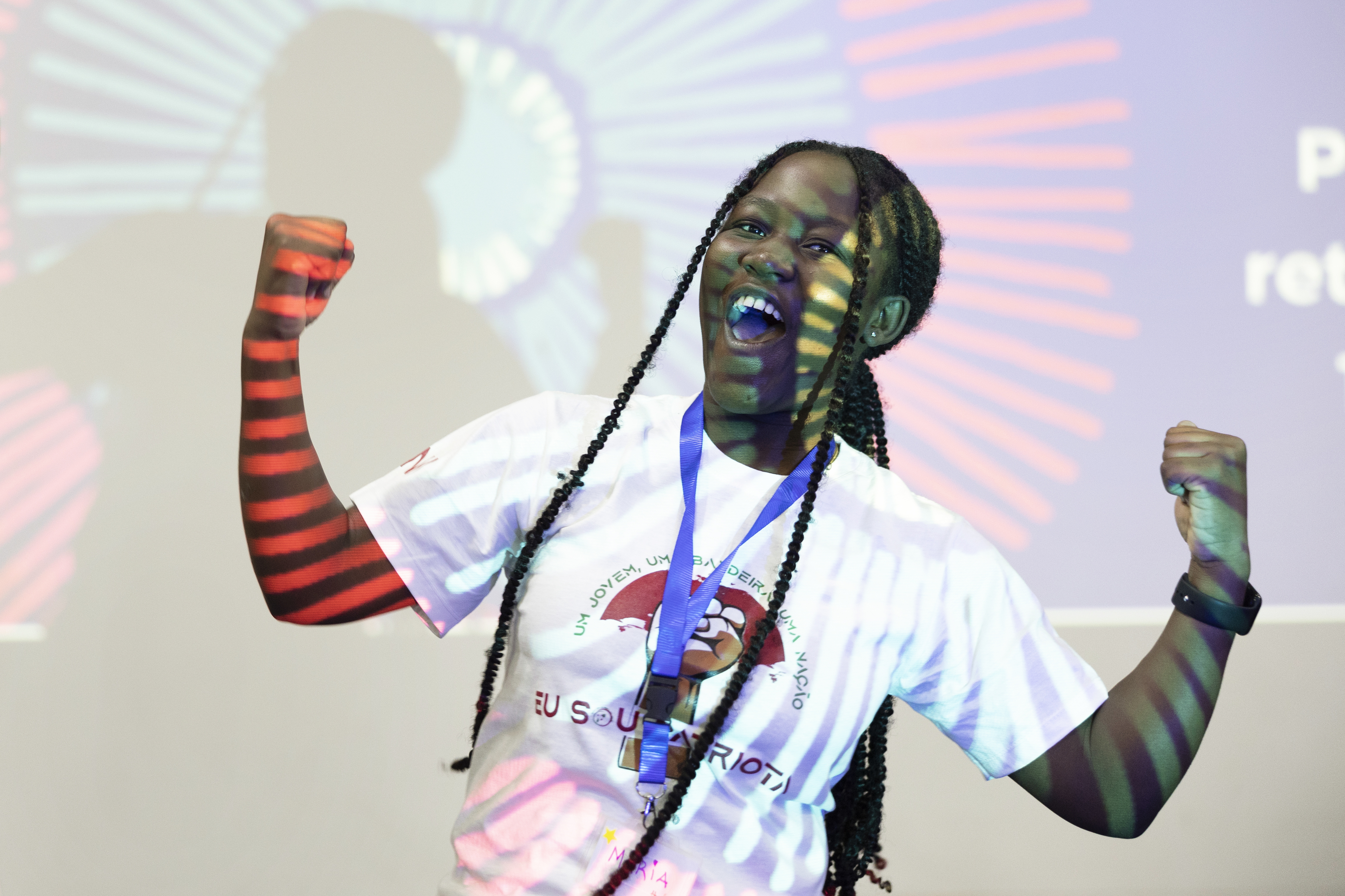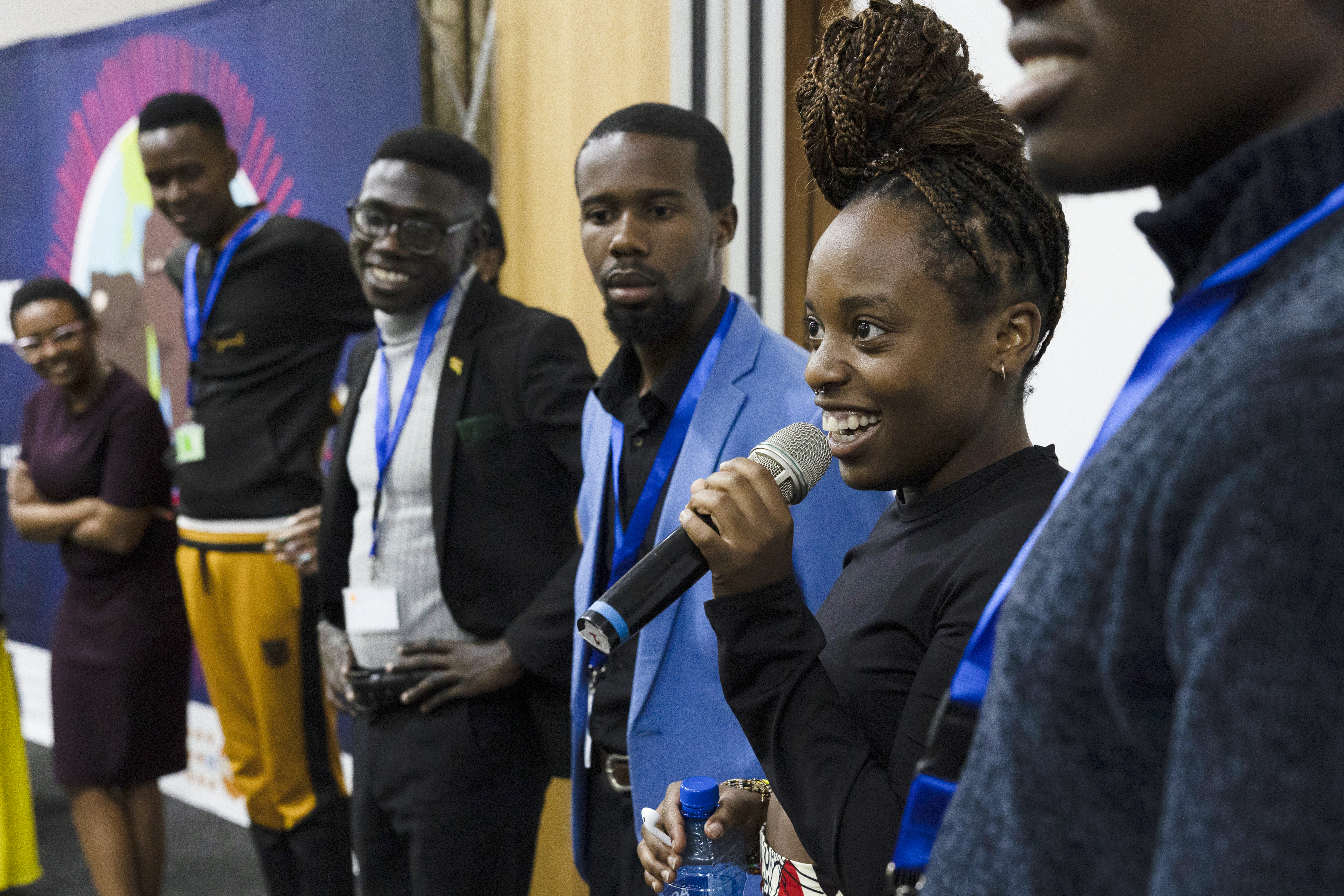
Elias Sambo, from Kaduna State, Nigeria, had campaigned for as long as he can remember on the health rights of young people living with HIV. He and 40 young leaders persuaded Radio Nigeria - a station immensely popular with daily listeners across all ages – to host a regular programme called ‘Let’s Discuss’. It became a portal for young people to learn about Pre-Exposure Prophylaxis (PrEP) and other ways to protect themselves from HIV and to access services, including sharing phone numbers for support and hotlines to report abuse.
His work, applauded by the Minister of Youth, catapulted Sambo into Nigeria’s national advocacy space, where he now influences and contributes to policy-making processes, which impact young people’s sexual reproductive health and rights. He is also a state coordinator of a youth-led network, called the Association of Positive Youth in Nigeria (APYIN), which offers care and support for young people to access antiretroviral therapy and PrEP, as well as safely disclose their HIV status and share experiences.
Sambo is a strong advocate for involving young people in designing programmes, which helps to ensure they are more relevant to young people’s realities. He was part of the group of global advocates organized through Y+ Global that developed a guideline on meaningful and ethical engagement of young people called We Matter, Value us. It outlines seven things that matter most to young people when engaging with them in advocacy and influencing spaces, including ensuring diverse representation of young people.

“If you’re hosting a session about girls’ rights, don’t send your white, male, director to represent. If you’re hosting a session about trans rights, don’t send a lesbian to represent. If you’re claiming to represent young people, don’t send an old person to paraphrase our views, not least because technology has completely changed the way we engage and communicate” he explains.
“Young people have the skills, knowledge, capacity and experience to contribute and engage meaningfully in all spaces. Most individuals and organisations feel young people are new to activism so lack experience, so you get old activists speaking on our behalf. There should be nothing decided about us without us. We matter. Our impact needs to be valued. Our narrative is for youth by youth. We live in an advanced technological global society, where young people design activities that work for their age group, because the old ways simply don’t work” he adds.
One of the key values in this guide is ensuring young people feel safe when they engage in decision-making spaces. Stigma, discrimination and homophobia around HIV are barriers which not only stop young people from accessing information and services for young people, but they also impact on how young people advocate, meaningfully participate and influence change.
“There are lots of organizations trying to help key populations in the HIV response, LGBTQI+ people, young people, but if your internal policies and your HR practices are still discriminatory, you’re not helping us.”
Sambo, along with 12 young leaders, has been trained as a champion of the guidelines. He has been actively promoting and disseminating the guidelines in Nigeria. The guidance package also includes a scorecard for young people to rate organisations and hold them accountable in how they engage them. Sambo has met with government and youth-serving organisations across the country and presented the new guidance in key platforms like International Adolescent Health week events.

“For people living with HIV, discrimination is particular to cultures, religious and nations, but what’s universal is self-stigma, and that’s worse than any bad feeling you get from anyone else” explains Sambo. “We need to prioritise the mental health of young people living with HIV, especially adolescents, because at this stage of life, most young people find it difficult to access support and do not know the right channel to seek support, or who to speak to. Some indulge in drug or alcohol abuse. We need support groups for adolescents and young people living with HIV to learn and make informed decisions. If parents hide their own HIV status or that of their child, they cannot adhere to ART and therefore they do not remain healthy”.
Laurie Gulaid, UNICEF’s Regional HIV advisor, said: “We at UNICEF are dedicated to our ongoing partnerships with youth-led organisations, like Y+. We welcome accountability in our engagement with diverse young voices, ensuring they feel safe and supported. Investing in young people and fostering the sustainability of youth-led organizations is key to an impactful HIV and SRH response.”

Young people’s voices are crucial in programme design as they understand the gaps, the reasons certain approaches will be successful or fail, and these insights are fundamental to developing functional policies and services. However, for young people's voices to be truly heard, it’s essential to create safe conducive environments which are free of stigma, where young people can express their lived experiences. Expanding the reach and influence of young leaders, however, requires dedicated time and investment. We need to respect the contribution and expertise of young people, shifting from tokenism to letting young people lead.